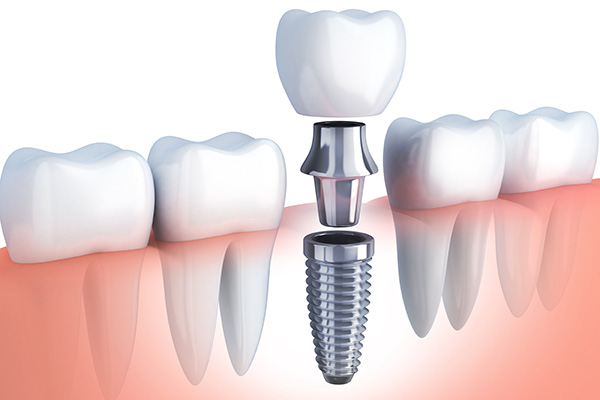 Dental patients who are planning a visit to an implant dentist may be unfamiliar with the details regarding implants. It is crucial to learn as much information as possible before scheduling an appointment for this surgical procedure.
Dental patients who are planning a visit to an implant dentist may be unfamiliar with the details regarding implants. It is crucial to learn as much information as possible before scheduling an appointment for this surgical procedure.
Important questions to ask an implant dentist
A dental implant is a common permanent tooth replacement option that can be highly beneficial to a patient’s health and happiness. The following are important questions for patients to ask an implant dentist regarding the procedure prior to treatment.
What are dental implants?
Dental implants are artificial tooth roots that are permanently placed in the jaw bone to provide a sturdy base for replacement false teeth. Implants are a treatment option for patients who are missing a tooth or multiple teeth, as well as teeth that are damaged beyond repair. They are an alternative to traditional dentures and have become an increasingly popular option in recent years.
Why are dental implants necessary?
Patients who are dealing with missing teeth need to have them replaced as soon as possible. Bone loss in the jaw happens quickly following tooth loss, which can greatly alter the appearance of the face. When a tooth is missing, the surrounding teeth begin to shift around the empty space. This shifting can result in misaligned teeth. Patients may also have difficulty with eating and speech.
What is the procedure like?
An implant dentist starts by doing a thorough exam and may take X-rays and impressions of the teeth. If there is a diseased or damaged tooth still present, it will be removed. A hole is drilled into the jawbone and the implant is placed.
Osseointegration, the process in which the bone fuses to the artificial root to make it strong and stable for the replacement tooth, then takes place over weeks or months. After the jawbone has completely healed and fused with the implant, a connector known as an abutment is placed. Finally, the replacement teeth are attached to the abutment.
What are the benefits?
Dental implants are an effective tooth replacement procedure due to the ability to stimulate bone growth in the jaw and prevent bone loss. Implants have a natural look and feel, as well as the ability to function like real teeth. Patients with dental implants are able to speak clearly and eat normally, which can lead to greater self-confidence in social settings. Compared to traditional dentures, implants do not fall out and are generally found to be more comfortable. With proper care, dental implants are long-lasting and durable.
How long is the healing process?
The total average healing time for dental implants is usually around four to six months. This is mostly due to the osseointegration process as it takes time for the bone to properly fuse to the implant.
Check out what others are saying about our dental services on Yelp: Implant Dentist in Forest Hills, NY.
Conclusion
Dental implants are a wonderful tooth replacement option that provides a healthier and beautiful smile. An implant dentist can help restore a patient's smile and confidence.
Request an appointment or call Gentle Touch Dental Care at 718-924-2387 for an appointment in our Forest Hills office.
Related Posts
Getting the All-on-4® overdentures procedure done involves a dentist implanting four titanium screws or rods into the upper and lower jawbone. This is a more stable alternative to removable partial dentures. It can be not easy to eat or speak with removable dentures, but with permanent dentures, patients can have more freedom and comfort while…
Individuals who struggle with symptoms of sleep apnea may not realize the help their dentist can provide by assessing or treating this sleep disorder. Dentists will often ask patients about their sleep habits to assess the possibility of an individual dealing with apnea, though there are other oral health signs that could lead to a…
Receding gums can be a symptom of gingivitis, the first stage of gum disease. It can also be caused by other factors, like a genetic predisposition to developing gum recession or bad brushing techniques.Gingivitis occurs when plaque and tartar make their way below gum tissues. The bacteria inside them infect gum tissues, leading to an…
